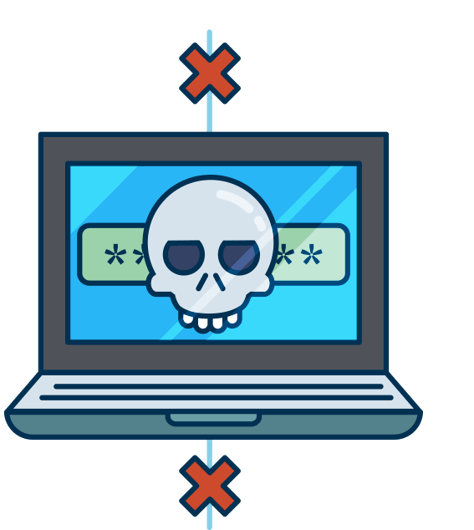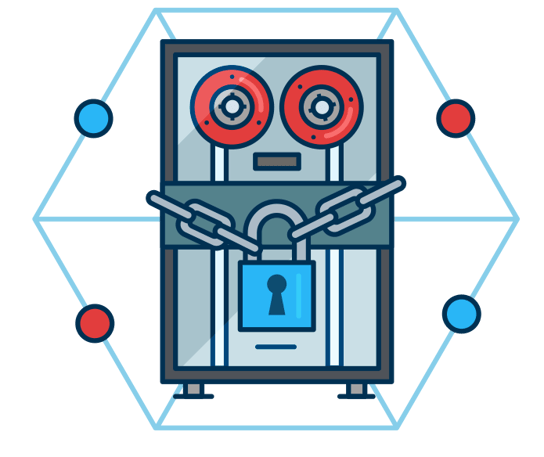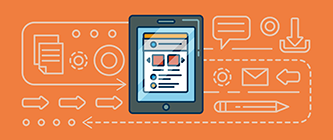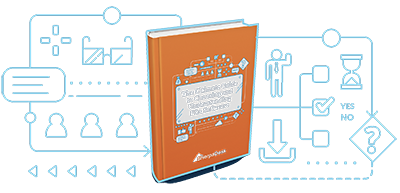Cybersecurity is a growing threat facing most online businesses today, and MSPs are particularly vulnerable because cybercriminals are constantly trying to breach vulnerable companies and their affiliates for financial gain.
This issue has become increasingly problematic for IT & MSP entrepreneurs because MSP companies are entrusted with securing their customers' data before they can even begin to offer additional services. This is why MSP entrepreneurs must take all the necessary steps to protect their customers' data from hackers and breaches at all costs because it only takes one bad breach to put both the MSP and its customers out of business.
While cybersecurity is a critical aspect of running an MSP, surprisingly, it's also an aspect that can often be neglected. But MSPs that don't take their customers' cybersecurity seriously are in for a world of hurt when the inevitable hack happens.
Sadly, many online businesses may not be fully aware of all the steps they need to take to ensure proper cybersecurity defense and compliance. This is especially acute for MSPs, who must first focus on in-house cybersecurity before handling their customers' data.
Let's explore some of the most dangerous (and common) IT & MSP cybersecurity vulnerabilities and what you can do to avoid them:
Why Are MSPs Targets For Cyberattacks?
Some MSPs question the reasoning behind why they've become a target for cyberattacks. The primary reason that MSPs have become easy targets for hackers is accessibility. The truth is that as more businesses outsource their IT and data workload to MSPs, the greater the risk for security breaches.
A successful attack on just one MSP can result in a massive payload of data for cybercriminals to steal and exploit for financial gain. For example, one MSP can serve hundreds of businesses and connect them to thousands of users and devices to exploit. When this happens, the result is that the breach will not just impact one business but hundreds, if not thousands, all experiencing the ripple effect of this attack to various degrees.

Startup MSPs must dedicate the necessary resources and staff to maintain a recipient cybersecurity infrastructure. This can be particularly challenging in this day and age of WFH and distributed workforces (both on the customer end and in-house), making the whole network more vulnerable to cyberattacks.
Understanding the threats MSPs and their customers face today concerning digital security is the first step in implementing practical measures to enhance IT security across customers and MSPs networks.
Why Is Cybersecurity Crucial For MSPs?
Cybersecurity attacks create a domino effect that spreads from the original point of entry. Hackers are always looking for avenues to attack online businesses, and many often aim to attack companies by exploiting their third-party vendors like an MSP. For instance, the malware attack that caused the Target data breach in 2013 began from a phishing attack to one of their third-party vendors.
Originating from a simple phishing email, the malware got into the Target network, leading to nearly one hundred million customers having their personally identifiable information (PII) compromised.
Since MSPs often manage large distributed networks, a breach like Target's can generate a widespread attack with multiple backdoor entry points for hackers to exploit.
Part of an MSP's job nowadays is to ensure that any third-party vendors used by their customers also prioritize data security; otherwise, this can become the weakest link waiting for a hacker to exploit.
MSPs today have a unique role in protecting their in-house and customer data. That's why they must have cybersecurity SOPs that include conversations between vendors and customers, ensuring everyone has a security policy that fully protects data across the entire network.
How to Provide Enhanced Cybersecurity As An MSP
For MSPs, it’s crucial to ensure that the cybersecurity policies of all parties involved are on the same page and have the same goals for their digital safety.
Think of the cybersecurity controls between your clients, third-party vendors, and your MSP as a two-way highway. If everyone implements the correct cybersecurity measures, it protects everyone.
1. Promote More Secure Password Policies.
MSPs should promote the importance of password protection to their clients as well as to their in-house staff. Since passwords are one of the most commonly used methods to access a user’s accounts, data, and other services, strong and complex passwords that cannot be easily cracked should be part of your password policy. You can also provide both staff and your clients with information about using a password manager. This will help them create more secure passwords and offers a place to store passwords securely.
2. Emphasize Awareness and Education With Clients and Staff.
Education and awareness of cybersecurity issues should be emphasized with both your clients and your staff. This sentiment should be true whether your MSP is large or small. If your MSP is large enough, you can leverage your IT teams, learning and development, or marketing employees to create education and awareness one-pagers or security-related content for your employees and clients. For both small and large MSP businesses, there is a large network of free resources like the National Institute of Standards and Technology (NIST) that you can utilize and share between staff and clients.

3. Adopt Zero-Trust Initiatives.
Zero trust is a growing trend among cybersecurity experts that focuses on access based solely on trust and assumes every user is possibly an adversary. This practice puts emphasis on adding stricter policies in place for the accessibility of systems and networks. MSPs adopting this initiative for themselves and clients will see better cybersecurity practices across all teams.
4. Perform Regular Security Audits for Your MSP and Clients.
There are numerous ways that MSPs can conduct IT and security audits throughout their organization. The goal of security audits is to regularly review IT policies and procedures to ensure that your organization is prioritizing cybersecurity. Some of the security audits you can conduct can be internal and external such as phishing campaigns. These practices can help your staff be prepared in the event of a potential cybersecurity issue that they could be faced with.
What security measures do you have in place at your MSP? Have you taken a look at your cybersecurity SOPs lately? Don't wait for a hack to do it.








comments